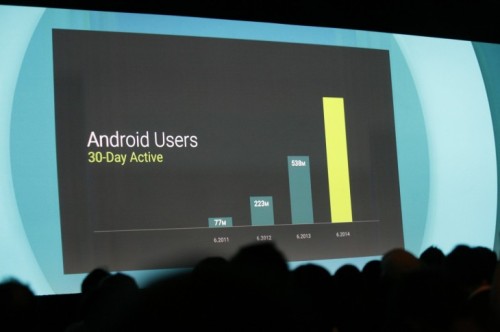Month: June 2014
Daily dose of Instagram
Android now has 1 billion active users
Google is releasing some stats at their Google I/O event. According to The Next Web, they’ve now switched from device activation counters to 30-day user activity metric. Here’s how the growth over the last few years looks like:
That’s a lot in my book. With about 7 billion people living in the world, that’s 1 in every 7 people on the planet uses an Android device.
1 billion #Android devices out in the world. That’s something like 93 million selfies taken every day … give or take #io14
— Google (@Google) June 25, 2014
Google drops profile photos
Just when I finally figured out how to have my profile photo show up in search results, Google is dropping the feature and changing the design. Thank you very much, Google. I hope at least this decision wasn’t based on my ugly mug appearing all around the web.
Google introduces Gmail API
Google is introducing the new Gmail API:
While IMAP is great at what it was designed for (connecting email clients to email servers in a standard way), it wasn’t really designed to do all of the cool things that you have been working on, which is why this week at Google I/O, we’re launching the beta of the new Gmail API.
This is somewhat expected:
Designed to let you easily deliver Gmail-enabled features, this new API is a standard Google API, which gives RESTful access to a user’s mailbox under OAuth 2.0 authorization. It supports CRUD operations on true Gmail datatypes such as messages, threads, labels and drafts.
As a standard Google API, you make simple HTTPS calls and get your responses in JSON, XML or Google Protobuf formats.
This is a nice bonus:
In contrast to IMAP, which requires access to all of a user’s messages for all operations, the new API gives fine-grained control to a user’s mailbox. For example, if your app only needs to send mail on behalf of a user and does not need to read mail, you can limit your permission request to send-only.
To keep in sync, the API allows you to query the inbox change history, thereby avoiding the need to do “archaeology” to figure out what changed.
They are also saying that it’s fast. These are very welcome news indeed.





